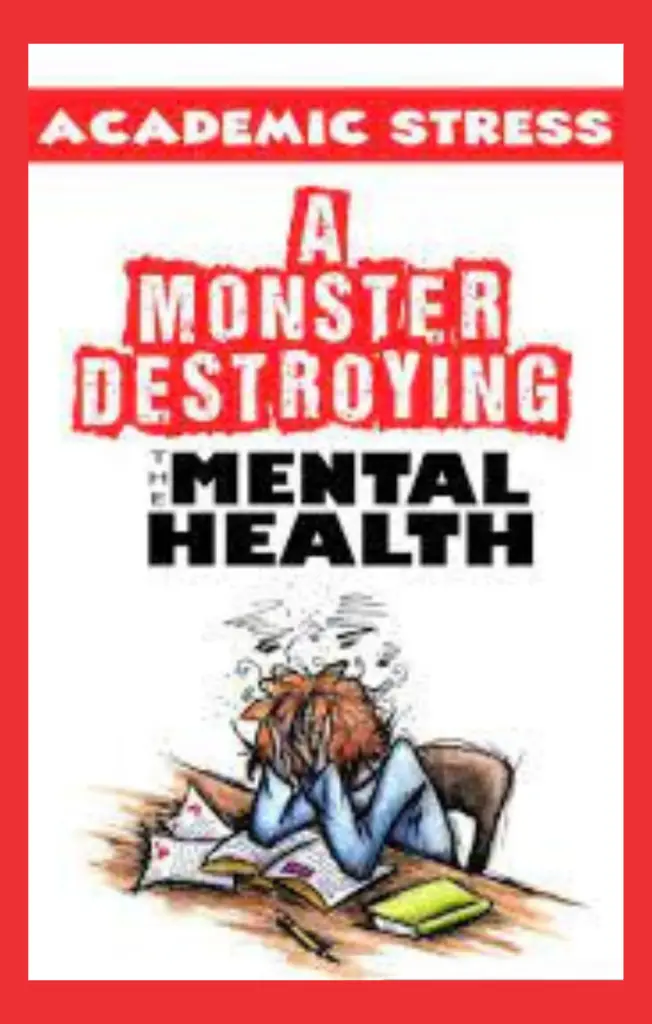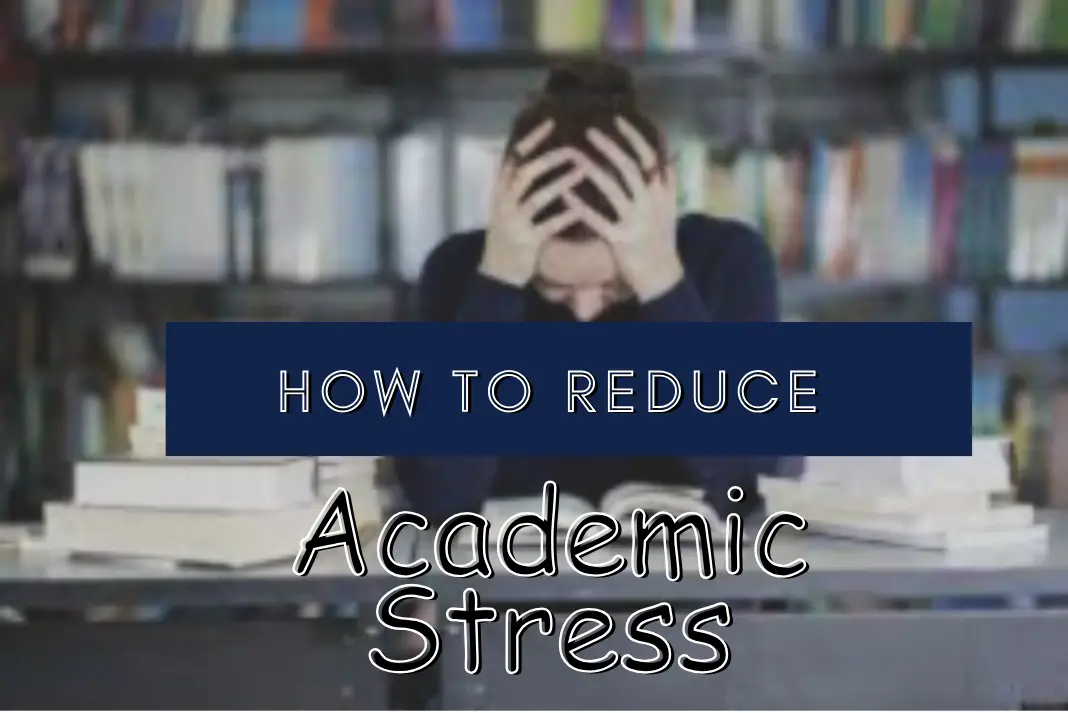The student experience is a tumultuous one with many ups and downs. However, the burden of academic pressure often overshadows this voyage of learning, negatively impacting not just academic performance but also mental health. In this article, we will examine the complex interplay between academic stress and mental health, focusing on proactive ways to alleviate the strain. From understanding where academic stress comes from to embracing constructive coping techniques, join us on a mission to lighten academic loads and cultivate a healthier, more balanced life for students.
Table of Contents
Understanding Academic Stress and Mental Health
Starting the academic journey is exciting, but it comes with its fair share of challenges. Academic stress, a common partner on this educational adventure, represents the tension and demands students face due to the various scholastic expectations placed on them. Whether it be looming deadlines, difficult coursework, or the endless pursuit of high marks, these stressors can significantly impact a student’s mental health.
Grasping academic stress means recognizing the diverse nature of these pressures, understanding the unique challenges each student faces, and acknowledging the influence it can have on overall well-being. By examining the complexities of academic stress, we can develop strategies to cope, thrive, and cultivate a more supportive educational environment.
Impacts on Mental Health
Feeling the Pressure:
Academic stress puts students under immense pressure to excel.
The quest for academic success often leads to persistent stress.
Emotional Weight:
Students bear emotional strain due to academic stress.
Feelings of frustration, anxiety, and being overwhelmed become part of the journey.
Sleep Troubles:
Elevated stress often disrupts students’ sleep.
Difficulty falling asleep or maintaining a regular sleep routine is a frequent challenge.
Physical Toll:
Academic stress takes a toll on students physically.
Symptoms like headaches, fatigue, and muscle tension may arise.
Focus Fumbles:
Stress hampers students’ ability to concentrate.
Absorbing information or completing tasks becomes a challenging endeavor.
Risk of Mental Health Struggles:
Prolonged academic stress heightens the risk of mental health struggles.
Conditions like anxiety and depression may emerge or worsen.
Withdrawing Socially:
Students grappling with significant academic stress may withdraw socially.
Isolation can worsen the challenges related to mental well-being.
Unhealthy Coping Habits:
To cope with stress, students might resort to unhealthy habits.
From substance use to avoidance behaviors, various coping mechanisms may come into play.
Understanding how academic stress affects mental well-being is vital for creating effective strategies to address and alleviate these challenges.

Signs and Symptoms
Recognizing signs and symptoms of academic stress is crucial for proactive management. Here are key indicators to be mindful of:
Heightened Irritability:
Quick to frustration or anger.
Reacting strongly to minor irritations.
Constant Fatigue:
Feeling tired despite adequate rest.
Experiencing persistent physical and mental exhaustion.
Changes in Sleep Patterns:
Difficulty falling asleep or staying asleep.
Experiencing restless or disrupted sleep.
Increased Anxiety:
Feeling consistently stressed or anxious.
Overthinking and excessive worrying.
Procrastination:
Delays in starting or completing tasks.
Putting off responsibilities due to stress.
Difficulty Concentrating:
Inability to focus on academic tasks.
Mind wandering during study sessions.
Physical Ailments:
Experiencing headaches, stomachaches, or muscle tension.
Physical symptoms due to stress manifestation.
Changes in Eating Habits:
Loss of appetite or overeating.
Altered eating patterns as a response to stress.
Social Withdrawal:
Avoiding social interactions.
Isolating oneself from friends and activities.

Coping Strategies for Students
Time Management:
Becoming skilled at managing time is an essential technique to reduce stress for students. By prioritizing assignments based on how urgent and important they are, students can make a well-organized schedule that allows particular times for different duties. This approach helps prevent feeling overwhelmed by separating tasks into more achievable pieces. It’s basically about making a structured plan to take on responsibilities, which makes the academic path feel more controllable and less daunting.
Set Realistic Goals:
Setting realistic and attainable goals is essential for managing academic stress. By establishing objectives that align with daily responsibilities, students can avoid overcommitting and, consequently, prevent unnecessary stress. Realistic goal-setting fosters a balanced and achievable approach to academic tasks.
Seek Support:
Obtaining assistance is similar to having a lifeline when dealing with academic stress. It involves connecting with friends, family, or mentors and expressing what’s on your mind. These trusted people can provide helpful viewpoints, empathy, and a comforting presence. Creating a supportive network is like having a guiding light to assist you in navigating the highs and lows of academic life.
Maintaining a Healthy Way of Life:
Preserving a healthy lifestyle is like possessing a secret weapon against stress. It entails ensuring adequate high-quality sleep, which benefits both body and mind. Balancing your diet and fitting in regular exercise provide extra boosts for your overall well-being, providing you with the strength to handle academic pressures. Essentially, it involves caring for yourself to perform at your best when confronting student life’s challenges.
Mindfulness Practices:
Incorporating mindfulness into your daily routine is like adding a touch of calm to your life. Whether through meditation or deep breathing exercises, these practices work wonders in reducing stress. They help you be present, focus on your task, and carve out moments of relaxation. Basically, it involves weaving tranquility into your routine for an overall sense of well-being.
Connect Socially:
Engaging in social activities is essential for emotional well-being. Building connections with peers through social interactions fosters a sense of belonging and support. A strong social network provides a valuable buffer against the isolating effects of academic stress.
Effective Study Techniques:
Exploring and adopting diverse study techniques helps students find what works best for them. Experimenting with different approaches to studying enhances efficiency and effectiveness, allowing students to optimize their learning experience.
Seeking Professional Help:
Recognizing when academic stress is becoming overwhelming is vital. Identifying the right time to seek professional assistance, whether through counseling or other support services, is an admirable and essential move for protecting mental wellness during challenging academic periods.
The Role of Educational Institutions
The role of educational institutions goes beyond just academics, having a profound influence on students’ academic and mental well-being. Rather than just conveying knowledge, these institutions can either alleviate or worsen academic stress. Supportive ones provide valuable resources like counseling services, mentoring programs, and stress management workshops, cultivating an environment where students can thrive.
Furthermore, institutions that encourage open communication and empathy play a crucial role in lightening the burden of academic stress. Adopting a holistic approach that acknowledges the interconnection between academic and mental health transforms educational institutions into more than just places for learning—they become nurturing environments that prioritize the overall well-being of their students.
Mental Health Resources for Students
Mental health resources for students encompass various support services and initiatives crafted to nurture the emotional and psychological well-being of students. These resources play a pivotal role in addressing the unique challenges that students encounter during their academic journey. Key components of mental health resources include:
Counseling Services:
Expert Support: Skilled counselors provide private sessions to tackle personal, academic, or emotional issues.
Personal and Group Assistance: Students have the option for either one-on-one sessions or group therapy, offering a variety of avenues for help.
Workshops on Stress Management and Resilience:
Educational Sessions: Educational institutions host workshops centered on stress management, fostering resilience, and promoting mental health awareness.
Enhancing Skills: These workshops provide students with practical tools to effectively cope with academic stress and the various challenges life presents.
Awareness Campaigns:
Destigmatizing Efforts: Campaigns strive to lessen the stigma linked to mental health concerns, fostering an atmosphere where students are at ease seeking assistance.
Educational Campaigns: These initiatives educate students about prevalent mental health challenges and emphasize the significance of timely support.
Supportive Campus Environment:
Transparent Communication Channels: Creating open avenues for communication among students, faculty, and staff nurtures a supportive community.
Faculty Involvement: Promoting faculty awareness of students’ well-being and guiding them on accessible resources strengthens overall support.
Online Resources and Apps:
Digital Platforms: Numerous educational institutions provide online resources and mental health applications, offering students accessible and convenient support.
Self-Guided Resources: These tools encompass self-help articles, guided meditations, and stress-relief exercises that students can conveniently access at any time.
Peer Support Programs:
Peer Counseling: Certain colleges introduce initiatives where trained student peers lend a supportive ear to their fellow students.
Building Community: These programs promote a sense of community and camaraderie among students, alleviating feelings of isolation.

Parental Involvement and Support
Active participation and encouragement from parents are essential elements in easing academic stress for students. When parents are actively involved in their children’s educational journey, it builds a strong support network that goes beyond the classroom. This involvement encompasses regular communication with teachers, staying informed about the academic challenges faced by their children, and extending a helping hand when necessary. By maintaining open lines of communication, parents can provide emotional support, guidance, and motivation, fostering a positive home atmosphere conducive to academic achievement.
Furthermore, parental assistance in managing time, setting goals, and addressing concerns significantly contributes to the overall well-being and academic success of students. Essentially, the collaboration between parents and students forms a solid foundation for success, helping navigate the intricacies of the academic path.
Conclusion
Starting the educational experience is similar to riding a rollercoaster, with its high and low points. However, the pressure and strain of schoolwork can cast a shadow over this experience, impacting both academic grades and mental health.
Understanding academic stress requires recognizing the many pressures students face, identifying individual challenges, and grasping their effect on overall wellness. The impacts on mental health, like increased anxiety, emotional burden, and physical exhaustion, highlight the need to proactively manage stress. Recognizing signs and symptoms is key, from irritability and fatigue to changes in sleep and withdrawing socially.
Coping strategies for students are vital tools, like effective time management, setting realistic goals, seeking support, maintaining a healthy lifestyle, practicing mindfulness, and socializing. Recognizing when professional help is needed is admirable, contributing to mental well-being during difficult academic times.
In summary, the collective efforts of students, parents, schools, and support systems can transform academic challenges into growth opportunities. By navigating the complexities of academic stress with resilience and proactive strategies, a positive and nurturing environment can be fostered, ensuring a balanced and fulfilling student experience.

